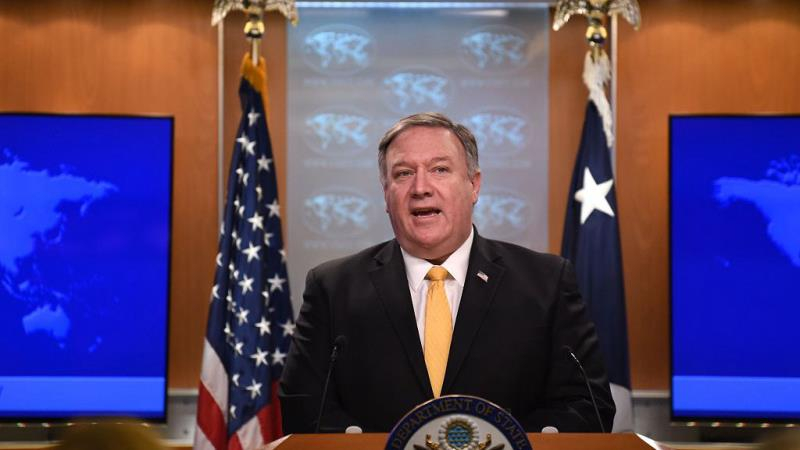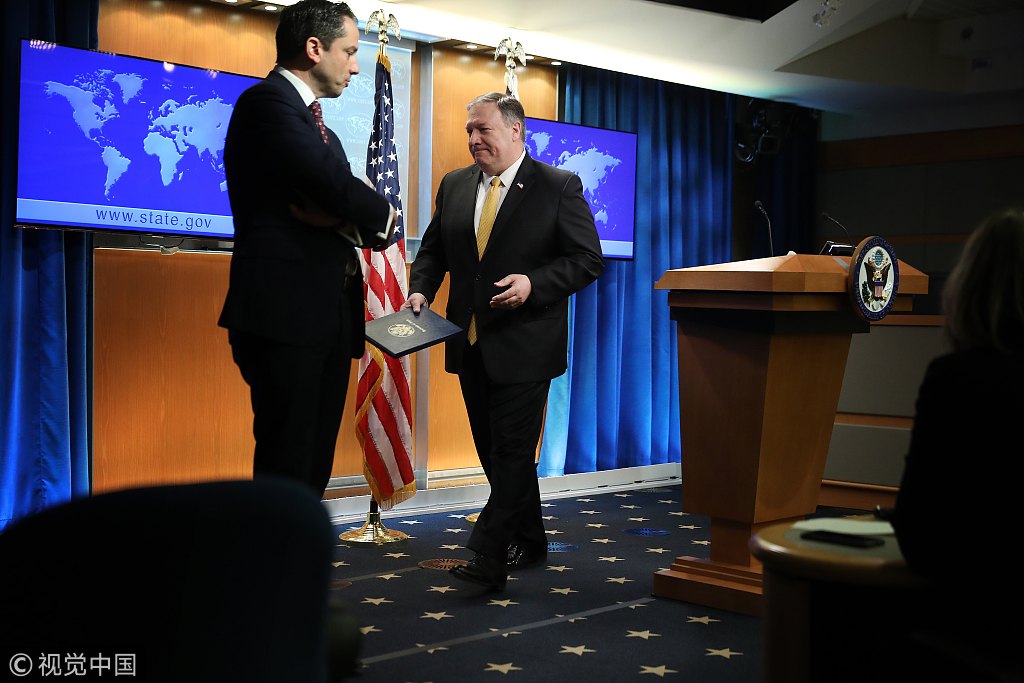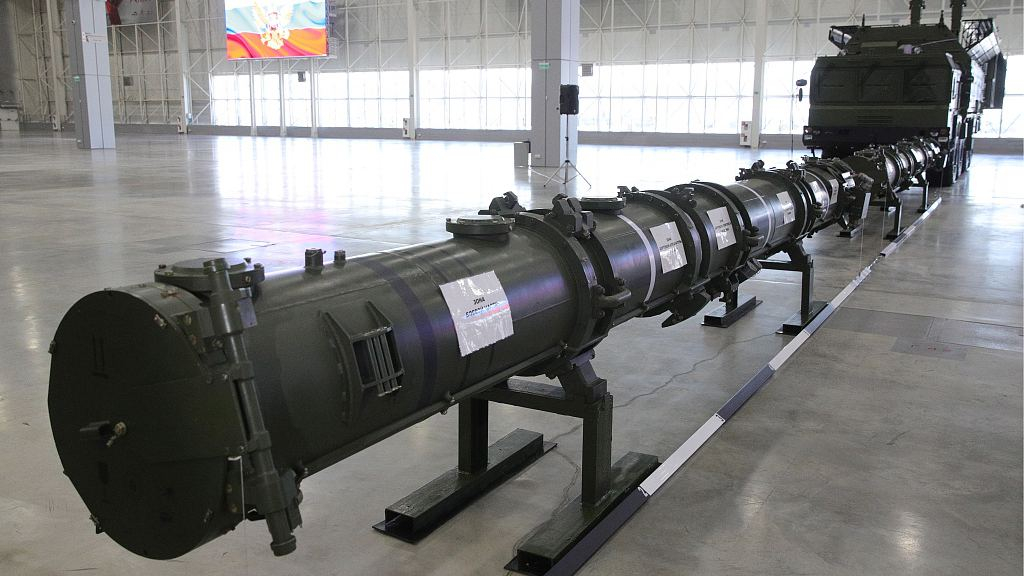
North America
21:41, 01-Feb-2019
Moscow says still ready for dialogue over the INF treaty
Updated
08:17, 02-Feb-2019
CGTN
01:28

Moscow is ready to maintain a dialogue over the Intermediate-range Nuclear Forces (INF) Treaty after Washington said it planned to pull out of the deal, Russian state news agency RIA reported on Friday citing a foreign ministry spokeswoman.
But the same spokeswoman, Maria Zakharova, later told Reuters she had not made the comments about Russia being willing to continue dialogue with Washington over the treaty.
Interfax news agency quoted Zakharova as saying Moscow reserves the right to respond to the United States' decision to withdraw from the treaty.
U.S. Secretary of State Mike Pompeo announced on Friday that the U.S. is withdrawing from the INF Treaty with Russia on Saturday, a move is seen as exacerbating the risk of an international arms race.
The treaty was signed in 1987 between the Soviet Union and the U.S. on the elimination of intermediate-range and shorter-range missiles.
The announcement starts a 180-day clock to complete the withdrawal "unless Russia returns to compliance" with the agreement.

U.S. Secretary of State Mike Pompeo walks away from the podium at the conclusion of a news briefing at the State Department February 01, 2019 in Washington, DC. /VCG Photo
U.S. Secretary of State Mike Pompeo walks away from the podium at the conclusion of a news briefing at the State Department February 01, 2019 in Washington, DC. /VCG Photo
"We will provide Russia and the other treaty parties with formal notice that the U.S. is withdrawing from the INF Treaty, effective in six months," Pompeo told reporters.
Effective Saturday, "the United States will suspend its obligations under the INF Treaty and begin the process of withdrawing from the INF Treaty, which will be completed in six months unless Russia comes back into compliance by destroying all of its violating missiles, launchers and associated equipment," U.S. President Donald Trump said in a statement.
"The United States has fully adhered to the INF Treaty for more than 30 years, but we will not remain constrained by its terms while Russia misrepresents its actions," Trump said.
In recent years, the U.S. and Russia have been accusing each other of violating the arms control agreement amid increasing tension between the two countries.
Pompeo, while announcing the decision at a news conference, said that Washington still wanted to engage in arms control negotiations with Russia and hoped Moscow would come into compliance.
"The United States is hopeful that we can put our relationship with Russia back on better footing, but the onus is on Russia to change course from a pattern of destabilizing activity, not just on this issue but on many others as well," Pompeo said.
The U.S. alleges a new Russian cruise missile violates the pact, a claim that has been repeatedly denied by Moscow. The missile, the Novator 9M729, is known as the SSC-8 by the North Atlantic Treaty Organization (NATO).

The 9M729 missile demonstrated after a briefing for military attaches and international media by the Russian Defense Ministry at the Patriot Congress and Exhibition Centre in Kubinka, Moscow Region, January 23, 2019. /VCG Photo
The 9M729 missile demonstrated after a briefing for military attaches and international media by the Russian Defense Ministry at the Patriot Congress and Exhibition Centre in Kubinka, Moscow Region, January 23, 2019. /VCG Photo
Russia says the missile's range puts it outside the treaty, and has accused the U.S. of inventing a false pretext to exit a treaty that it wants to leave anyway so it can develop new missiles. Russia also has rejected a U.S. demand to destroy the new missile.
Reactions from world
NATO allies "fully support" the United States' pending withdrawal notice from the INF nuclear missile pact over Russia's actions, a statement by the alliance said.
"The United States is taking this action in response to the significant risks to Euro-Atlantic security posed by Russia's covert testing, production, and fielding of 9M729 ground-launched cruise missile systems," it said. "Allies fully support this action."
The French government called on Russia on Friday to use the six-month period triggered by the United States's decision to withdraw from the INF to comply with its obligations under the landmark accord.
The French Foreign Ministry said in a statement that it regretted the U.S. decision to quit the treaty in six months unless Moscow ends its alleged violations of the 1987 arms control agreement.
The ministry added that France will encourage dialogue with Russia during the six-month period and consult with NATO alliance partners.
The German government said it would use a 6-month notice period to keep negotiating with Russia over the INF treaty.
"In any case, we will do everything we can on the German side, both the Federal Foreign Minister and I, to make talks possible again in these six months," said German Chancellor Angela Merkel.
Source(s): AFP
,Reuters
,Xinhua News Agency

SITEMAP
Copyright © 2018 CGTN. Beijing ICP prepared NO.16065310-3
Copyright © 2018 CGTN. Beijing ICP prepared NO.16065310-3